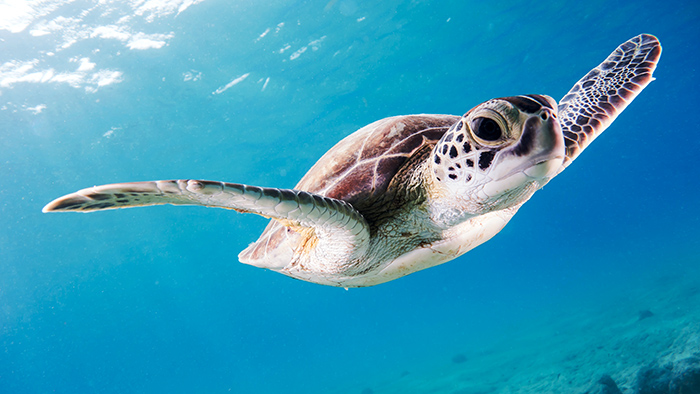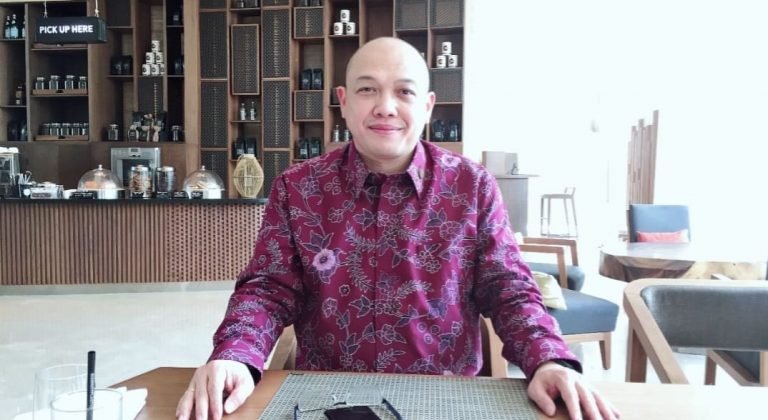
By: Ridwan J Zachrie, CFO/Senior Advisor of Seven Stones Indonesia
The Blue Economy is an approach to sustainable development that focuses on the use of ocean resources in a way that promotes economic growth, social inclusion, and environmental sustainability.
The term “blue” refers to the vastness of the ocean, which covers more than 70-percent of the earth’s surface and has the potential to generate a wide range of economic and social benefits.
The Blue Economy encompasses a variety of sectors, including fisheries and aquaculture, maritime transport, renewable energy, coastal tourism, and marine biotechnology. It also includes the conservation and sustainable use of marine resources, such as fisheries management and the protection of marine biodiversity.
The Blue Economy is gaining increasing attention from policymakers, businesses, and civil society organizations as a way to promote economic development while also protecting the health and productivity of the ocean. Some of the key principles of the Blue Economy include sustainable resource use, ecosystem-based management, and the equitable distribution of benefits.
Proponents of the Blue Economy argue that it can provide a pathway to economic growth and poverty reduction, particularly in developing countries with significant coastal resources. However, it is important to note that the sustainable development of the ocean requires careful planning and management to avoid overexploitation and environmental degradation.
Obstacles in Implementing the Blue Economy
The implementation of a blue economy faces several obstacles that must be addressed to ensure its success. Some of the common obstacles in implementing a blue economy include:
Lack of Awareness and Understanding
A significant obstacle to implementing a blue economy is the lack of awareness and understanding of the concept. Many people, including policymakers, are not familiar with the concept, making it difficult to develop and implement policies that support it. Raising awareness and promoting education and training on blue economy principles is crucial to overcome this obstacle.
Limited Financial Resources
The development of a blue economy requires significant investments in infrastructure, technology, and research and development. Many developing countries, including Indonesia, may lack the financial resources to invest in these areas. Access to financing and investment opportunities, including public-private partnerships, is crucial to overcome this obstacle.
Policy and Regulatory Barriers
The development of a blue economy often requires significant changes in policies and regulations, which can be challenging to implement. For example, promoting sustainable fisheries practices may require changes to existing policies on fishing licenses and quotas. Overcoming policy and regulatory barriers often requires a multi-stakeholder approach that involves the government, private sector, and civil society.
Environmental Challenges
The implementation of a blue economy faces significant environmental challenges, such as overfishing, pollution, and climate change. These challenges require the development of innovative solutions that promote sustainable use and conservation of marine resources. The government and private sector can collaborate to implement sustainable practices that mitigate these challenges.
Limited Institutional Capacity
The successful implementation of a blue economy requires robust institutional capacity and effective governance structures. Many countries, including Indonesia, may lack the necessary institutional capacity to implement a blue economy fully. Building institutional capacity through training and development programs is critical to overcome this obstacle.
Implementing a blue economy faces several obstacles, including lack of awareness, limited financial resources, policy and regulatory barriers, environmental challenges, and limited institutional capacity.
Overcoming these obstacles requires collaboration and cooperation between the government, private sector, civil society, and other stakeholders.
The Role of Indonesia in Enhancing a Blue Economy
Indonesia, as the largest archipelagic country in the world, has enormous potential for developing a blue economy. A blue economy is an economic model that emphasizes the sustainable use of ocean resources, including fisheries, aquaculture, renewable energy, tourism, and marine biotechnology. The role of Indonesia in enhancing the blue economy can be summarized as follows:
Fisheries and Aquaculture
Indonesia is the second-largest producer of fish in the world, and its fisheries and aquaculture industry provides jobs and income for millions of people. The government has implemented policies to promote sustainable fisheries practices and improve the quality of fishery products. Indonesia can enhance its blue economy by investing in modernizing the fishing industry, increasing the production of high-value species, and improving the efficiency of aquaculture production.
Renewable Energy
Indonesia has abundant renewable energy sources, including tidal, wave, and ocean current energy. The development of these resources can reduce the country’s dependence on fossil fuels and help mitigate climate change. The government has set a target to achieve 23-percent of the country’s energy mix from renewable sources by 2025. The private sector can play a crucial role in developing renewable energy projects in Indonesia.
Marine Tourism
Indonesia has a diverse range of marine ecosystems, including coral reefs, beaches, and islands. Marine tourism can contribute significantly to the country’s economy, but it also presents challenges to the marine environment. The government has implemented policies to promote sustainable marine tourism, such as establishing marine protected areas and regulating tourism activities. Indonesia can enhance its blue economy by developing eco-friendly tourism infrastructure and promoting sustainable tourism practices.
Marine Biotechnology
Indonesia has rich biodiversity, including marine organisms with medicinal and industrial potential. Marine biotechnology can create new economic opportunities, such as developing new drugs and cosmetics, and improving food production. The government has implemented policies to support research and development in marine biotechnology. Indonesia can enhance its blue economy by encouraging innovation and entrepreneurship in this sector.
In conclusion, Indonesia has great potential to enhance its blue economy, given its abundant marine resources and strategic location. The government can play a crucial role in promoting sustainable development practices, while the private sector can contribute to investment and innovation.
If you’d like more information, or if you’re interested in investing in the blue economy, get in touch with us at [email protected]

















